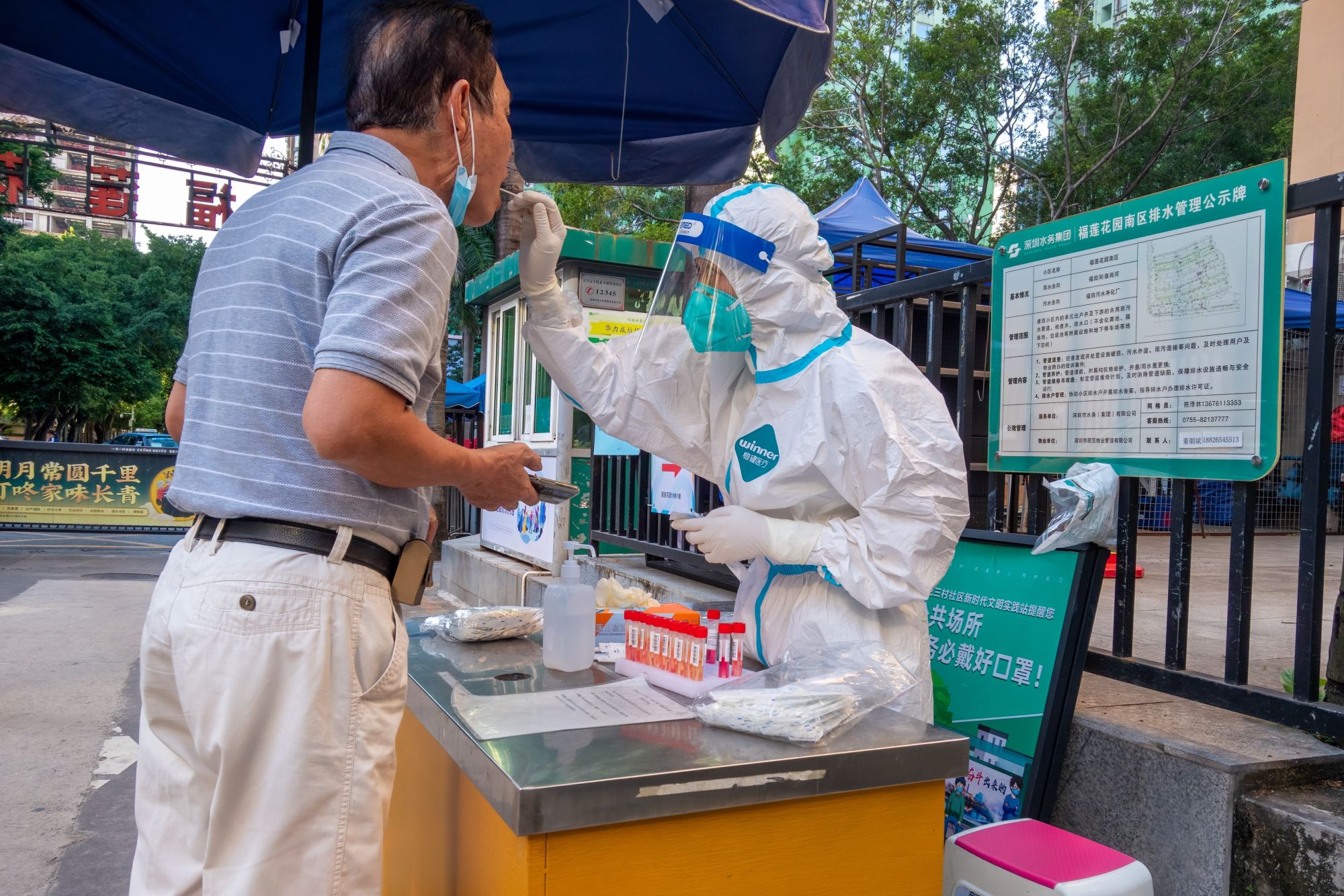
Last year, global equity markets delivered the best calendar year of returns of the decade, but then the Covid-19 global health crisis burst that bubble causing millions of job losses and leaving businesses fighting for survival and economies in turmoil. And, for investors, the last three months have been among the most volatile periods in modern investing history.
The Asset spoke with Singapore-based Brian Arcese, portfolio manager at Foord Asset Management to get his outlook and insights into investing in global equities in the current climate.
TA: Geographically, who comes out of the Covid-19 pandemic in the best shape, Asia or the rest of the world? And where do you place Australia?
BA: Rather than thinking geographically, countries most likely to weather the Covid-19 pandemic and economic storm are likely to be those who can fund and support their economies and health policies – testing, care, surveillance, and provision of relief and stimulus packages.
In both instances, developed G20 economies are in a better position to provide support to small and medium-sized enterprises and the unemployed, with hopes that normal business conditions will resume in a relatively short period of time.
This is informed by several assumptions, including that fiscal packages reach their intended targets, the likelihood of more stimulus provision in the United States – this being an election year – and that interest rates remain at historic lows.
With the fiscal taps open, it is likely that developed markets will tide over the crisis better than their emerging counterparts. China, however, will have a similar wherewithal to other large developed economies to manage both the health and economic challenges.
Though the current circumstances are undoubtedly challenging for all countries, Australia is likely to emerge from the pandemic in relatively better shape than many of its peers. It recently announced an A$130 billion (US$83 billion) scheme intended to provide replacement wages for up to six million Australians who may have otherwise lost their job due to disruptions caused by Covid-19.
Adding to this is that while borders remain closed to visitors, the flow of goods and services – while curtailed – remains ongoing.
Finally, while it is too early to make a definitive conclusion about the country’s health policy, it seems to be successful and this, coupled with the aforementioned points, will likely allow Australia’s economy to bounce back.
TA: Some economies were already running out of steam. Is the Covid-19 shutdown going to damage them for a number of years now?
BA: At the beginning of 2020, the world appeared to have stabilized with global economic prospects accelerating compared to 2019.
Although additional discussions are required to cement a full and final US-China trade deal, the signing of phase one in early January signalled that the peak of uncertainty had likely passed. The removal of this headwind alone was likely to add 0.4% and 0.6%, respectively, to the 2020 US and China GDP growth.
In Europe, the United Kingdom had finally withdrawn from the European Union following 1,317 days of relentless and fractious debate. Though formal withdrawal marks the beginning of a transition period during which London and Brussels will hammer out the particulars of their future relationship, the fact that a withdrawal had taken place meant businesses could finally begin planning and investing for the new backdrop.
In the US, finally, a combination of continued wage growth (from 1.5% in 2011 to 3% in early 2020), coupled with significantly more accommodative financial conditions driven by three successive interest rate cuts by the US Federal Open Market Committee, meant that the economic backdrop in 2020 was looking better than 2019.
Following on to my response above, indebted countries – particularly those whose functional currency has depreciated against the dollar and that have a high degree of dollar denominated debt – will suffer.
Many poor and middle-income countries will suffer significant economic damage. Additionally, many of these countries garner a sizeable source of GDP from tourism, a sector which will rebound, but most certainly not in the near-term. For example, in many Southeast Asian countries, tourism is a large percentage of GDP – 18% in Thailand and 30% in Cambodia.
Finally, the collapse in oil prices caused by both a shocking decline in demand and an increasing supply will cause a few oil exporting emerging markets to suffer. Covid-19 and, more accurately, the economic pain resulting from the fight against the virus will likely take a number of years to recover from.
TA: The retail and hospitality sectors have been very badly affected. Can they recover or do they have to completely reinvent their models?
BA: The offline retail sector in many markets had already been challenged prior to the Covid-19 pandemic. A number of large, developed-market department stores, including Macy’s, JC Penney, and Nordstrom’s, had been reducing square footage and headcount in an effort to battle declining profit margins.
A combination of online competition – competing on price, assortment and convenience – and changing consumer preferences had already created a challenging operating environment. These traditional retailers are unlikely to recover in their current form.
Similarly, consumer preferences have shifted away from fast fashion towards more socially conscious, environmentally friendly consumption. This trend is likely to accelerate. New brands have and will continue to emerge while those that are unable to adapt will continue to decline.
Hospitality and tourism will recover, particularly leisure travel. However, the pain as measured in both severity and duration is likely to be longer than many expect. Tourism globally employs nearly 10% of the workforce and contributes US$8.8 trillion to global GDP.
With air travel severely curtailed (96% of Singapore Airline’s flight schedule is cancelled through the end of June) and stringent border closures in effect for an unknown period of time, that portion of the economy will no doubt be challenged.
Following the global financial crisis, it took US airlines six years to return to profitability and eight years for airline fares to return to the peak levels seen in 2000. In the current crisis, Italy has reported a 96% year-on-year decline in tourism spend during the month of April.
In this environment, businesses with stretched balance sheets are unlikely to survive unless they are propped up by their governments. That being said, we have confidence this sector will return over time, however, not every company around today will be here tomorrow.
TA: Sectors such as healthcare, utilities and consumer staples might offer some shelter for investors. Which other sectors do you envisage as being robust going forward? Any unusual ones?
BA: Aside from those defensive sectors highlighted above, there are sectors that are likely to benefit from Covid-19, even if only through an acceleration of ongoing trade. First, and likely one of the more obvious, would be the online retailers – Amazon, JD.com and VIPSho – who are continuing to take market share from offline competitors.
Additionally, many technology-enabled businesses could see a growth acceleration as a result of Covid-19. For example, virtual physician consultations, while available before Covid-19, are receiving much more use today. We would expect a significant portion of this increased market share to remain post-Covid-19.
Further, online educational tools are likely to be longer-term beneficiaries of the current environment as learning institutions and students realize that on-campus study is not necessarily a requirement.
Outside the known technology beneficiaries, there are also firms that will benefit from the technology-enabled trends. For example, Kion and Honeywell both offer full warehouse automation systems that both significantly reduce labour requirements while improving speed, efficiency, and safety. The automation business units within these two firms will be natural beneficiaries of the continued growth of online retail, as well as the automation of non-retail-oriented warehouses.
TA: Facebook recently invested US$5.7 billion in Indian digital platform Jio. Do you expect to see more e-commerce mergers and acquisitions (M&A) deals like this? And what about e-sports platforms are they likely to grow?
BA: Facebook’s deal with Jio allows its apps to potentially be pre-installed on an increasingly growing smartphone population in India. Despite Facebook’s relative dominance in the Indian market, it has seen growing competition from Chinese platforms like Tiktok, particularly in lower income groups where smartphone penetration is still growing.
Other international companies with ambitions to penetrate Indian markets will continue to look to local companies for potential partnerships or M&A, likely not just in e-commerce, but also in other verticals going forward. For example, Walmart is already invested in Flipkart (e-commerce) and Ctrip in Makemytrip (online travel agency).
In terms of e-sports, the segment itself remains at the very early stages of growth. For the emerging Asian markets, many consumers are accessing online multiplayer gaming for the first time through their smartphones.
As the gaming population grows, interest in e-sports will grow as well. During this Covid-19 period, Twitch viewership, for example, saw a 24% year-on-year growth during the recent lockdown periods. Youtube, along with Chinese players Huya and Douyu, will all see continued viewership growth not just for e-sports but also for live-stream gaming over the next three to five years.
TA: In Asia, environmental, social and governance (ESG) and impact investing had a lot of momentum coming into 2020. Will that be a casualty of the pandemic or will awareness now rise and we will see even more funds allocated?
BA: The ESG momentum will continue and, if anything, will be boosted by the Covid-19 pandemic. The current situation will increase awareness of impact investing, whether in the healthcare space, or outside of it.
We anticipate consumer preferences to trend more toward sustainable, environmentally friendly, and socially conscious purchases, and the investment decisions by corporates and institutions to follow the same path.
Foord Asset Management, with its roots in South Africa, was founded in Guernsey in 1997 and expanded into Singapore in 2012 and Luxembourg in 2013. It is an independent, owner-managed investment boutique offering a premium investment management service to long-term investors.









